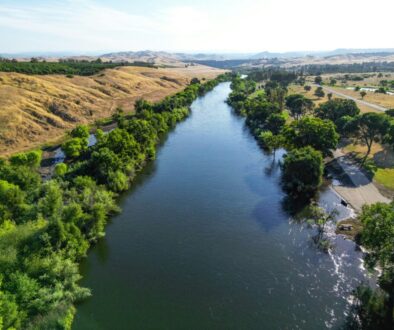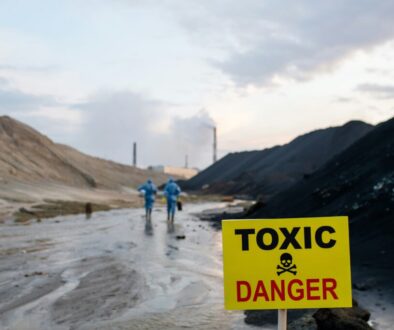Postcard from California: Big Oil is not dead yet
 As California advances toward its goal of virtually eliminating the use of fossil fuels in 20 years, the state has dealt the oil and gas industry a barrage of body blows.
As California advances toward its goal of virtually eliminating the use of fossil fuels in 20 years, the state has dealt the oil and gas industry a barrage of body blows.
Four years ago, Gov. Gavin Newsom ordered a ban on the sale of new gasoline-powered cars and trucks starting in 2036, while diesel-powered freight trucks will be outlawed by 2042. A 2022 law banned new oil and gas drilling near homes, schools and hospitals, and Newsom has directed regulators to end to all drilling in the state by 2045.
Last year, California also established a watchdog agency to monitor the state’s petroleum industry for alleged price-gouging at the pump, among other consumer protection provisions. And State Attorney General Rob Bonta filed a sweeping lawsuit against five of the world’s biggest oil companies for their decades-long coverup of the climate impact of burning fossil fuels.
The industry whines that the Newsom administration wants to put it out of business, and headlines declare that it faces the “end of the road” in California.
But Big Oil is not dead yet.
In this year’s legislative session, which ends Aug. 31, an array of environmental bills have died or stalled in the face of fierce industry opposition:
• Assembly Bill 3155 would have held oil and gas companies liable for well-documented health harms of emissions on people living near oil and gas wells and production facilities.
• Senate Bill 1497 which would have made greenhouse gas polluters pay for the state’s costs of responding to the destructive impacts of the climate crisis.
• Assembly Bills 1866 and 2716 which would have required oil and gas drillers to move quickly to plug the state’s tens of thousands of idle or low-production wells with steep fines for foot-dragging.
• A proposed California Green Amendment would have allowed voters to decide if the right of every Californian to clean water and air and a healthy environment should be added to the state constitution.
Assemblymember Isaac G. Bryan of Los Angeles, author of the Green Amendment bill, shelved it for reconsideration next year after it was watered down in committee hearings amid heavy lobbying from Western States Petroleum Association (WSPA).
WSPA and the California Chamber of Commerce – whose board of directors includes executives of Chevron, BP and other oil and gas companies – labeled it a “job killer.”
Delay of the bill leaves California lagging behind other states that have enshrined environmental rights in their constitutions. In Sierra magazine, Dana Drugmand (a regular contributor to The New Lede) recently reported that the constitutions of seven states, including New York, Illinois and Massachusetts, have explicit environmental-rights provisions, and there’s a growing movement to add such rights in more states.
Endorsing Bryan’s bill, a Los Angeles Times editorial made clear why “powerful business interests” opposed it: Giving Californians the right to hold their government accountable for failing to protect environmental health “could, in turn, force the state to crack down on polluters.”
In a state recognized worldwide as a green bellwether, with a governor who relishes picking fights with Big Oil, and Democrats holding supermajorities in both houses of the state legislature, how does the oil and gas industry still rack up wins in Sacramento?
Follow the money.
State records show that from 2023 through the first half of this year, Chevron made more than $4 million in campaign contributions to members of, and candidates for, the state Assembly and Senate. WSPA contributed more than $225,000.
Those amounts are dwarfed by spending on lobbying legislative committees and state agencies: In the same period, Chevron spent more than $18 million on lobbying and WSPA spent almost $12 million. Other oil and gas companies and industry-affiliated groups contributed and spent millions of dollars more.
In a report for the Los Angeles Times, Laura Fitzgerald and Max Harrison-Caldwell of the investigative reporting program at the University of California at Berkeley Graduate School of Journalism, found that seven of the 10 legislators who have received the most money from the oil industry in the last eight years are members of the so-called “Mod Squad,” Democrats who are more friendly to big business than fellow Democrats. Though few in number, they have enough influence on key committees to weaken or shut down legislation.
California Environmental Voters is a nonprofit, non-partisan group that scores lawmakers for their votes on climate and other issues. (I worked for the organization in the mid-1990s.) Melissa Romero, a legislative advocate for the group, told Fitzgerald and Harrison-Caldwell that in 2023, while the average pro-environment score for Democrats who did not take oil money was 96%, the average score for Democrats who did was 66%.
“So you can see really clearly,” Romero said, “how oil money influences their environmental voting record.”
But there are signs Big Oil’s clout may be diminishing statewide.
Fewer than 50,000 Californians now work in the declining oil and gas industry, compared to more than 400,000 who work in the growing clean energy sector. Chevron just announced it is moving its headquarters from the San Francisco Bay Area to Houston, eliminating thousands more oil jobs. As the number continues to shrink, politicians should be less eager to take money from an industry that employs few of their constituents.
And the biggest environmental victory in California politics this year was not in the legislature.
After passage of the 2022 bill banning new drilling near homes, schools and hospitals, the oil industry spent $20 million on a deceptive campaign to place a referendum on this November’s ballot to overturn it. Under state law, that put the law on hold until the election.
But in June, the California Independent Petroleum Association withdrew the proposition from the ballot, after polling showed it losing by a more than 3-to-1 margin. The ban is back in effect.
“Big Oil saw what they were up against – and they folded, again,” Newsom said in a statement. “No parent in their right mind would vote to allow drilling next to daycares and playgrounds.”
Californians clearly rejected the oil industry’s attempt to extend its long-held sway over state politics. They should also reject the politicians that take Big Oil’s money and do its bidding.
- Bill Walker has more than 40 years of experience as a journalist and environmental advocate. He lives in California’s San Joaquin Valley.
(Opinion columns published in The New Lede represent the views of the individual(s) authoring the columns and not necessarily the perspectives of TNL editors.)
(Featured image via Unsplash+ in collaboration with Getty Images.)
 EWG
EWG


